Matt Moore's Blog, page 13
March 15, 2013
Ad Astra 2013 Schedule

Here is my schedule for Ad Astra 2013, taking place in Toronto (or Markham as my Toronto-dwelling friends like to point out) at the Markham Holiday Inn Hotel & Suites:
Friday
10 pm: Floor 2, Suite 2
Reading:
I’ll be reading “Delta Pi“ and sharing the hour with fellow Ottawa writer Matthew Johnson
Saturday
12 pm: Franklin
Nerd Game Show Power Hour
Sara Dhooma (m), Daryl Smith, Matt Moore, Adam Shaftoe
1 pm: Berczy A
Defining Horror
Suzanne Church (m), Michael Matheson, Rio Youers, Matt Moore
4:30 pm: Berczy B
Autograph Session
Sunday
1 pm: Beaufort East
Summer Scifi Trailer Park
Sara Dhooma (m), James Bambury, Matt Moore, Adam Shaftoe
2 pm: Beaufort East
What Are Horror Authors Afraid Of?
Matt Moore (m), Suzanne Church, Rio Youers, Sandra Kasturi


February 3, 2013
What do Viagra and Zombies Have in Common?
Back in November, I was supposed to be on a panel titled “Why Zombies, Why Now?” Unfortunately, I’d fallen ill (which is ironic considering the premise of this post) and could not attend.
Thinking about the topic, the answer to the question “Why zombies, why now?” isn’t that zombies are metaphors for our fear of death or loss of identity. Zombies reflect our fear of being sick.
So why “now”?
The “Why Now” element could be taken two ways: why now and not another time; or, why are they still around right now?

I think with the fading enthusiasm for The Walking Dead, we are on the down swing of zombie popularity. But Warm Bodies could change that if it’s a hit.
This post is not about the history of zombies, so suffice to say zombies have been part of popular cultural for a long time. Night of the Living Dead introduced (or at least popularized) the modern version of the walking dead and their popularity has waxed and waned ever since.
But to the second way to interpret it: Why are we *still* dealing with zombies?
It’s because zombies might be the best, most flexible allegorical element in fantastic fiction. They can represent racism, consumerism, militarism, collectivism, socio-economic disparity, cultural homogeneity or just about anything else.
What’s changed is zombies have become a very literal symbol of something that we, as a culture, are terrified of: disease.
We’re more afraid of living poorly than of death
We used to fear death. We now talk about right to die, euthanasia and dying with dignity. Watching our parents and grandparents wither away in their 80s and 90s, warehoused in senior centers, we’ve come to realize death might not be such a bad thing.
We don’t fear death; living with a poor quality of life terrifies us. And while one’s quality of life in one’s 90s is more a trick of genetics, quality of life—that perfect life—in our younger years is an obsession.
There’s a pill for that
 Watch the nightly news on an American network. Look at all the commercials for drugs and hospitals. Everything is a disease to be conquered
Watch the nightly news on an American network. Look at all the commercials for drugs and hospitals. Everything is a disease to be conquered
Exercise and diet can address high blood pressure, but why bother when there’s a pill? While hand sanitizer stations were prudent during the H1N1 Flu outbreak in 2009, Purell is now part of the common lexicon as a noun, just like Kleenex, Q-Tips and Rollerblades.
And a disease isn’t a real disease unless it has an acronym. A man with low testerone levels has “Low T.” And not “lo tee”, but “loat-ee”, a liaison connecting the second consonant like the term has been around long enough for the pronunciation to have morphed. The same with Restless Leg Syndomre. “Ar-el-es?” Heck no, you have “ar’les”.
Whereas previous generations learned to live with certain things (and perhaps unfairly so), we want things to not only be fixed, but optimized. Viagara and Cialis won’t just fix your erectile dysfunction, but give you a happy marriage. Lunesta won’t just put you to sleep, but give your energy and vigor in the morning. We demand to have the perfect life free of all hardships.
Zombies are sick
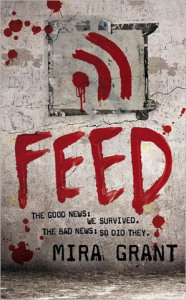
Feed by Mira Grant has two man-made viruses, one to cure cancer and the other to cure the cold, combining to give rise to zombies.
So what does that have to do with zombies? Recently, zombies have changed from “the walking dead” to “the infected.” Witness 28 Days Later. The Walking Dead (television series) visited the CDC looking for a cure, a cure Hershel Greene (in both the series and comics) believed existed. Max Brooks’ World War Z and the Zombie Survival Guide describes stages of how the zombie virus overcomes a healthy host. Books by Joe McKinney, Jonathan Maberry and Mira Grant all have the “zombie as virus” element.
Now take a look at the Google NGram search for “zombie plague”. It remains flat until the late 90s, rises a bit, then shoots up around 2004. While zombies have functioned as an expression of one fear or another since the 60s, today zombies represent our fear of disease.
And it’s not not just killers like cancer or ALS, or debilitating conditions like Parkinson’s or Alzheimer’s. It’s anything that stands in the way of the perfect life. TV and magazine ads promise a life free of bad moods, soft penises or restless nights. So what better view of the perfect life through a glass darkly than a zombie plague? Mindless, decaying, engaging in the horrific taboo of cannibalism. And not because of God’s punishment, nuclear experiments or chemical spills, but illness. Don’t get sick or you’ll be a zombie.
And for the living survivors? Being dirty, hungry, displaced and tired. In an age where middle class adults care for their aging parents, we don’t just see disease standing in the way of something better. The sick and infirmed around us are to blame for losing the perfect life we dreamed we were supposed to have.
What do you think?
Am I on the money here? Or missing something? Tell me in the comments if you think zombies represent our fear of disease.


January 27, 2013
Editorial on Urban Fantasy to Appear in On Spec
Pleased to report that On Spec Magazine has purchased my editorial on how Urban Fantasy is a reflection of our changing demographics. But, as the suburbs gain more influence, stories of the fantastic will shift their focus out of gritty down towns and into suburbia.
Look for it this summer.


January 20, 2013
Please nominate “Delta Pi” for 2013 Aurora Awards
Nominations are now open for the 2013 Aurora Awards. My short story “Delta Pi” from Torn Realities is eligible in the Best Short Fiction – English category. Please visit Δπ (Delta Pi) – Aurora Award Eligible to read or download the story and learn about nominations.
The Auroras recognize the best in Canadian science fiction, fantasy and horror. Any Canadian citizen or resident can nominate a story.
Thanks for your support!


January 15, 2013
Life, Death and Ice Cubes: What a Changing World Means for Writers
In browsing the news yesterday, two pieces jumped out at me.
Deaf Belgian twins choose death over blindness
NBC News and The National Post, among others, carried a story about two 45-year old twins in Belgium who have been deaf since birth. Facing blindness, they took advantage of Belgium’s euthanasia laws and claimed they would face suffering due to the loss of their sight. And so, last month, they received lethal injections at a hospital. By all reports, they were quite rational about.
Ice cubes can detect how drunk you are

Ice cubes in a glass, color-coded to how much you’ve had to drink
I found this story on The Next Web about an MIT researcher who invented ice cubes that could track his level of drinking. After a black-out night of drinking, rather than vowing to never drink again he went all The Big Bang Theory and invented something. These ice cubes change color the more he has to drink, tracked by the motion of his glass. Should he have too much, the ice cubes can send a signal to his cell phone to text his friend.
What do these mean for writers?
Euthanasia is no stranger to science fiction and horror. Logan’s Run and Soylent Green spring to mind. But these are due to autocratic structures controlling population size.
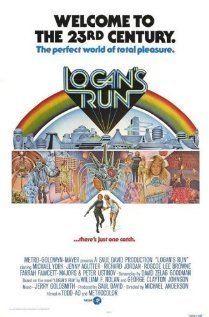
It’s people! Logan’s Running out of people! Or… maybe not… I haven’t seen the movies in a long time.
Here, two men couldn’t contemplate living without sight while never having had their hearing. While it is being labelled as euthanasia, it strikes me more as suicide. While relieving the suffering of others is noble, and through lethal means may sometimes be necessary, state-assisted suicide to alleviate suffering before-the-fact could open up some scary doors. (I don’t mean to judge these men. I am troubled, but am not saying it is right or wrong. That’s not for me to say. What it suggests and could lead to, though, is troubling.)
Could a bullied teenager claim euthanasia to end her suffering at the hands of her tormentors? An obese person wants out rather than deal with the looks and comments of others, to say nothing of not literally fitting into a world designed for thin people? If someone is genuinely suffering and chooses to end their life, I fall on the side of listening to their wishes. A trouble, though, is people who are suicidal may not be in their right minds and making rationale decisions. (Personal note: Suicide has touched my life, so I have some experience/bias here. But that’s all I’m going to say.) So there may be times someone wants to die because they are suffering, and we shouldn’t listen to them. Suffering is relative, after all, but do we get to judge what is and isn’t suffering because it is relative?
For the ice cubes, they open up some others interesting doors. Assuming they are affordable, could they become a requirement of bars to identify intoxicated patrons? Could a (future) DNA test in the ice cubes sample DNA to attempt to detect under-age drinkers? Perhaps the ice cubes could also detect drugs in the liquid. Might hacking these ice cubes to control the information flow become the new fake ID market? In the Information Age, what information is being gathered right in your glass?
I think, as writers, these ideas beg to be explored and considered through the context that fiction can bring. When is is morally wrong for the state to help someone end their life, despite claims of suffering? How much information can we gather from recreational drinking and how should it be used?
They are challenging, complicated topics. Right up the alley of bright and talented science fiction and horror writers. Get to it!
[Editorial Note: I invite your comments, but anything about when it is right and wrong to commit suicide or euthanasia will not be approved. This post is not about that, but what issues it raises.]


December 31, 2012
2012: Year in Review
As 2012 comes to a close, here’s my obligatory year in review like I’ve done for 2011 and 2010.
Like 2011 as the year of rewriting my stories because I did not feel they were strong enough, 2012 was also the year of rewrite requests. In 2011 and 2012 I rewrote the following stories to make them stronger. As a result, they all sold in 2012:
Delta Pi ( Torn Realities, Post Mortem Press)
The Leaving (Blood Rites, Blood Bound Books), which needed a rewrite to clean up a narrative affectation the publisher didn’t think worked
They Told Me to Shuffle Off This Mortal, Infinite Loop (Title Goes Here, Issue #12)
And then I received rewrite requests from publishers for:
The Pack (AE – The Canadian Science Fiction Review)
In the Shadow of Scythe (Leading Edge Magazine, Issue #62), which went through two major rewrites
To say nothing of the usual proofing, copy edits and other effort that takes place when you sell a story. I guess this means that all that work paid off for producing sellable stories. As I write this, I only have two pieces of fiction still looking for their first home. All others have sold or I have trunked.
Numbers and figures
In 2012, I:
Made 50 submissions of 12 stories and 3 poems
Had 8 acceptances (which includes some submissions from 2011)
Made 50 blog posts, including this one
Taught two writing workshops in Ottawa
Conferences
I attended Ad Astra in Toronto, Can*Con in Ottawa and World Fantasy in Richmond Hill. I’d wanted to go to SFContario in Toronto, but was too sick following something I picked up at World Fantasy.
In summary and looking ahead to 2013
I remember being excited this time last year. After spending a lot of 2011 revising old stories, I’d vowed to “bring the awesome.” It didn’t work out as I’d hoped. I spend most of 2012 pushing boundaries, trying new things and working to bring fresh new energy to my writing.
And I fell on my face. Of all the stories I wrote in 2012, I think only two were worth a damn. I sold “That Which Does Not Kill You”, which was written for an invite-only anthology. The other, a fantasy family drama “The Binding”, is making the rounds. So even though I sold some stories and polished others, my new work is not where I wanted it to be.
I know it’s common to set goals for the new year, but I’ve never been one for that. I can’t control if I will make it into a pro market and word counts can be as limiting (“I hit my goal, I’m going to stop”) as inspiring (“I need to write today!”).
But I do have a goal for 2013. It’s the same as it ever has been: no regrets. This means:
I won’t get to the end of the day, week, month or year thinking I wasted time when I should have been writing. If I am not writing, there are good reasons for it. Bad reasons are not acceptable.
Writing is not just typing. I can write on the bus, at lunch or in bed at night before I go to sleep. This can be thinking about characters, conflict, dialogue or other elements that I should have ready-to-go when I start to type.
Each new story should have something new in it. That can be a character I have not tackled before, a tone or theme, or just some element I want to punch up (e.g., sensory description, characterization purely through dialogue). I will never take the easy way out and write something I have done before.
Be part of the community. With Facebook, Twitter and Goodreads there is no reason I should not be participating in discussion on the art and business of writing. In person, there is a local Ottawa convention and several in Toronto I could attend.
And with this bit of self-indulgence out of the way, I wish you all a great 2013!


December 19, 2012
Could the Talk of Autism and Asperger’s in the Newtown School Shootings Just Make It Worse?
I found this video about introversion via Mashable and it reminds me a lot of the TED Talk by Susan Cain on the same subject. I wanted to post this in the wake of the school shootings in Newtown in my home state of Connecticut.
Asperger’s Syndrome has been bandied about by the media as a possible explanation for the shooter’s motivation. (I will not name the shooter here.) While mental health must be part of the discussion, I worry talk about these conditions could make things worse, not better, for the shy and withdrawn. A reasonable discussion could quickly devolve into demonizing this conditions and even stretch to introversion, resulting in backlash to “fix” or “cure” those who have them.
Asperger’s is not an illness & introverts are not broken
I am not an expert in Asperger’s so can’t say much about it except this: It is not a mental illness. People with Asperger’s are not sick and don’t need to be cured.
As for introverts, if you are one or know one, you know we can be quiet, preferring to be off on our own and sometimes lose the thread of what’s going on around us because we are “up in our heads.” There is nothing wrong with this—it is how we process information. Outwardly, some might mistake it for Autism or Asperger’s.
[image error]
Leave me alone, I’m thinking AKA Introvert at Work
As the video states, introversion is seen as something wrong. Our school system stresses sharing and social skills while workplaces demand multi-tasking, people skills and group dynamics. Introverts often feel lost, disadvantaged, stressed and flustered. We are considered broken and many well-meaning people want to save us by pulling us from our shells. But as the gay community has said for decades, it is not a choice—we are born like this and don’t need to be fixed.
When you hammer a square peg into a round hole, pieces break off
What worries me is that as a society we are hammering a square peg into a round hole. Sheldon Cooper (The Big Bang Theory) and Abed Nadir’s (Community) social awkwardness are used for comic relief while other characters try to make them more social. This is presented as normal, but in real life when a square peg is smashed into a round hole, pieces break off. Sometimes, they shatter.

When we think of Asperger’s syndrome, Abed Nadir from Community springs to mind
I’m not suggesting introverts will be pushed to become mass killers, but certainly those introverts who are pushed into socializing and then retreat further into isolation in order to recharge would be further ostracized, increasing the stigma on introverts. This 24-hour, instant gratification world is losing its appreciation for pondering and reflection. The world’s thinkers are labelled with pejoratives like “geeks” or “nerds” or “brainiacs”.
Let’s put it this way: imagine an extrovert who can talk to anyone, makes decisions instantly and is always moving forward at 100mph. Her manager thinks some of her decisions might lack a bit of reflection, so asks her to close the office door, take an hour and think over a few things. No one would be surprised if this woman got flustered, frustrated or pissed off.
Just like an introvert being told to “loosen up” or “just make a decision, already”.
But it might get worse than that.
Mass Murderers are “quiet loners”… so are introverts
The profile of mass murderers—from Columbine to Newtown—always seems to be the “quite loner.” But that could apply to any serious introvert (including me). So will introverts be viewed as not just broken, but dangerous?
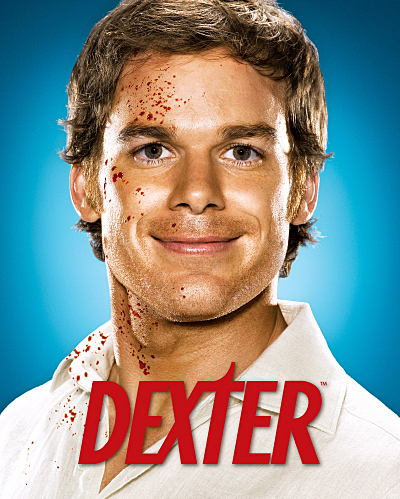
With the media saying those with Asperger’s “lack empathy”, could the public begin to see serial killer Dexter as Asperger’s poster child?
Media “experts” have been describing Asperger’s as lacking empathy. That’s psychopathology, not Asperger’s. The difference between the two defies comparison. Yet after decades of the pop science in crime dramas, could the average person stop thinking of Abed or Sheldon when they think Asperger’s and instead think of Hannibal Lecter or Dexter Morgan?
Could this idea that those with Asperger’s are dangerous penetrate the pop psychology, with armchair experts pushing for even more efforts to “fix” introverts to not just help them, but so they don’t lash out and kill people? They might argue it’s not enough to stress interaction, verbalization and sharing, but prevent them from being alone or remaining quiet for too long. An “expert” on television even “warned” that a teenage boy spending too much time alone should be a warning sign he will commit violence.
Or, will we be ostracized further under a cloud of suspicion that the quiet guy in cube 1020A is too quiet and might just snap? While an introvert might not be the life of the party, we still appreciate and expect (like everyone else) simple affection and respect. Avoiding us will not help.
In case you think I have forgotten the victims
Please don’t take this post to be all about me. Or that I am suggesting the shooter was drive to do what he did because he needed more time to process his thoughts. I’m not. I’m from Connecticut. My heart is broken. I am as stunned as anyone else that rather than target his tormentors (as in virtually all school shootings) this monster targeted children.
I just hope in all of this we don’t overreact. Yet the disengaged public, barely paying attention, only catches a few talking points: “Too much time alone… video games… social awkward… school shooter.”
We don’t need to rush to a quick fix for this complex situation. Because a common thread to all of these tragedies we seem to have lost is the introvert trait of listening more. And by listening, we understand. Then we can act.


December 13, 2012
Help Some Good Causes This Holiday Season
I know times are tough and writer-types are not rolling in dough, but I hope someone out there can help out three worthy causes.
Ottawa bookseller Collected Works looking for a buyer
Collected Works is a bookstore in Ottawa just west of the downtown core. It has been very good to Ottawa’s specfic community. But recently, owners Christopher and Craig posted to Facebook they are looking for a buyer. The price is only $1.00, but the new owner would need to take on liabilities. If they don’t have a buyer by December 24, they will be closing the store.
Times are tough and I hope a buyer can come through. I know it’s doubtful a buyer will see this post, but I’m asking if you’d please spread the word.
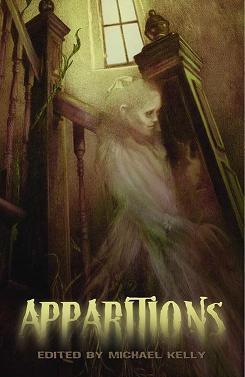 Help turn Michael Kelly’s Apparitions 2 from dream to reality
Help turn Michael Kelly’s Apparitions 2 from dream to realityMichael Kelly, who has edited the Chilling Tales anthologies (Edge) and the dark fiction journal Shadows & Tall Trees (Undertow) is turning to Indiegogo to fund a second volume of Apparitions. The first volume was a finalist for the Shirley Jackson Award.
Michael has already lined up stories from Glen Hirshberg, Kathe Koja, John Langan, Sarah Langan, Mark Morris, Reggie Oliver, M. Rickert and Simon Strantzas. If funds can be raised, there will also be an open reading period from Feb. 1–28, 2013. But Michael needs to hit his $5,000 goal by January 15, 2013.
Michael is an amazing editor and put together some great works. He’s also a great dude in his own right. Help him out?
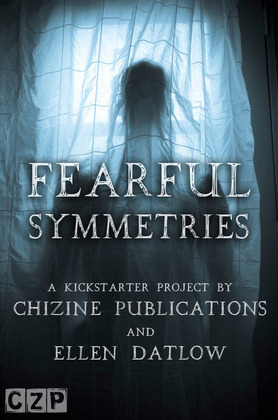 Ellen Datlow and ChiZine Publications team-up for a Kickstarter-funded anthology
Ellen Datlow and ChiZine Publications team-up for a Kickstarter-funded anthologyEditor extraordinaire Ellen Datlow has turned to Kickstarter to fund a new horror anthology Fearful Symmetries. Set for publication in 2014, Ellen has tapped ChiZine Publications to produce the book.
“This project is close to my heart,” says Datlow, “which is why I’ve decided to appeal to the public through Kickstarter. And while I have a stable of writers whose work I love, I want to give a chance to new talent that I may not be aware of. I want them to write the stories they’ve always wanted to and perhaps couldn’t because there was no venue for them.”
This campaign has to raise $25,000 by January 10 for it to happen. I know that’s a lot, but it goes to editing, layout, design and production costs. And they’re offering some great pledge options. They’ve already raised about $5K as I write this, so they’re on their way but need your help.
Okay, I’ve asked for enough of your money. Even if you can’t spare anything this close to Christmas, please spread the word.


December 1, 2012
Duotrope Digest Moving to Paid Model

“D” is for Duotrope. Starting January 1, you’ll pay $5/month to see it.
Woke up this morning to find that Duotrope Digest, a site offering listings for fiction and poetry markets, is moving to a paid model after being free for 7 years.
According to their post, subscribers will have access to:
Its search engine, which puts it above Ralan in my opinion
The ability to track one’s submissions
Statistics on reply times from markets
RSS feeds
Those who use the site for free will only be able to see limited details on markets. The subscription cost is $5/month or $50/year. This new model goes into effect January 1, 2013. The folks at Duotrope are also promising new features, but have not said what they are.
My opinion (since I know you are all dying to hear it)
While I understand the need to make a venture like Duotrope, which is likely a side-project by a few dedicated people, sustainable, I do think giving a month’s notice is not fair. A month may seem like a long time on one side of the glass, but consider it’s the holiday season and a lot of writers are dealing with NaNoWriMo hang-overs. And most part-time writers know a month can sometimes slip by without ever thinking about your writing.

December 1: Thanks God. I can post my final word count and get some sleep.
Also, writers are generally not the types who have money to spare. While it can be a hobby that some will put more money into than they get out, I try to keep my writing revenue neutral. Unless someone is cracking pro markets every time, a $50 investment might not make returns.
There is also the reality of the Internet. No one likes to pay for stuff they think they are used to getting—or think they deserve to get—for free. Ralan.com lacks the search and tracking features of Duotrope, but with some patience and a spreadsheet one can accomplish the same thing.
Some advice for Duotrope
While I support the freemium model, a paywall might be too much. Perhaps:
Allow current users a few months’ grace period with icons indicating what services will be cut off, but new users must subscribe.
A scaling model to allow access to different features for different prices. For example, I would gladly pay $10/year to retain access to Duotrope’s search engine. But $50 all-or-almost-nothing gives me pause. (And, full disclosure, I have contributed to Duotrope in the past.)
Depending on what number of subscribers is needed to be profitable, reward the first X subscribers with premium content. Perhaps announcements of new markets a day or two in advance on them going live.
The announcements says “As Duotrope adds and improves features — and we do have plans!” Tell us what these new features are. I think this is their biggest mistake in the change. Don’t tease us with vague promises. Telling user what is coming might make them more inclined to pay. For example:
Tying into the submissions tools some sites have so submission details are automatically tracked in my profile.
The ability to be notified when new markets are entered into the system based on my preferences. (For example, I want to know about new horror or science fiction markets paying semi-pro rates or better.)
Tell me when markets I have submitted to in the past, or have submissions into currently, close to submissions.
(Caveat: I’ve worked in Web development and know all of these suggestions can represent anywhere from a few hours to a few weeks worth of work.)
Wishing Duotrope a lot of luck
I hope this does not sound overly critical of Duotrope. I use their site and appreciate what they are offering to writers. What’s more, I appreciate the difficulty in running an online business, especially after seven years. What began as a “Wouldn’t it be cool if…” can become a sisyphean chore that one comes to resent as life changes and new demands arise. No doubt server costs are all borne by a small group of people, who might be simmering with resentment at a bunch of freeloaders.
I hope they make it, are able to make a small profit on their efforts, and are around for a good long time.
So what do you think? Is $50 too much or will you sign-up?


November 28, 2012
How to Kill Your Characters
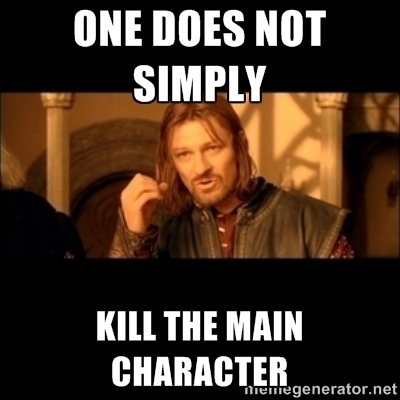
Sure you do.
I recently ran across an outline for an old story I didn’t write. A long piece, it had multiple characters and not all of them lived to the end.
It’s a good thing I didn’t write.
From the outline, it was obvious which characters would die right from the beginning. They had two common characteristics:
They were not point of view characters
They didn’t have character arcs
While their deaths served the needs to the plot, I’m certain they wouldn’t have had an emotional toll on the reader.
Character arcs create connections with a reader
A lot has been written about character arcs. I recommend you go take a look. To keep things short, a character arc is:

Walter White from Breaking Bad is a character who struggles against the odds. Despite the evil he does, he want him to win.
Introduce a character who has something that she wants but can’t get (or she has something she wants to keep)
This character should also have some kind of flaw
Something beyond her control changes, putting what she wants within reach (or, if she already has it, at risk)
She fights to get what she wants, but her flaw gets in her way… but she can’t see that it’s her flaw that’s holding her back
She struggles, determined, against long odds
There are setbacks and she considers giving up, but she moves on
Finally able to see her flaw for what it is, she overcomes the long odds and succeeds
We cannot help but to root for characters who fight for something, even if we disagree with it. We wish we had the heart to endure setbacks and, even though we know the pain that is coming, set off again to get what we want.
Regular people give up. Heroes struggle on.
So where do meaningful deaths figure in?
This is easy. Take the character arc described above, put success within reach, but the character dies before he can reach it. Making the death a self-sacrifice to save others gets you bonus points.
[image error]
Janet Leigh as Marion Crane, who began Psycho as the main character, but then got killed quite suddenly. This is just one of many reasons why Psycho works.
For example: the young, cocky solider who alienates everyone else. A girlfriend at home, he’s going to marry her when his tour is over. In combat, he builds trust with the other soldiers and overcomes his brashness. He becomes a sergeant. But with a few days before he goes home, he throws himself on a grenade to save his buddies.
We can tune this up by having him come to realize he never loved his girlfriend and she never loved him; their attraction was superficial. Plus, the soldier has never done anything meaningful with his life. And he could have escaped the grenade, but it would have cost the life of another soldier who has a wife and kids at home.
But readers will see it coming
This pattern has been done so often that we recognize it. How many times have you read a book or watched a movie, heard or read the line like “When I get out of here” and said to youself: Yup, he’s dead. So what can you do to surprise readers?
Short-circuit the character arc. Don’t have the character die at the end, but the middle.
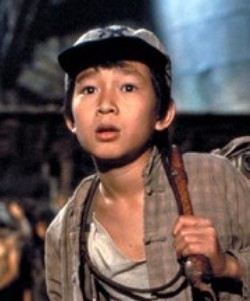
So, what if they killed Short Run halfway through Temple of Doom. How shocking would that have been? Especially if he actually affected the plot somehow…
In the example above, the tragedy is the soldier realized and overcame his flaws, but never had the chance to live a better life with this knowledge. Imagine now that when he becomes a sergeant, he has an inkling that he will have to change. He knows as sergeant, the responsibility to survive is on him. But before he can explore that idea, he is killed. The tragedy now is this realization never got to happen. We the audience are programmed to expect that he will change, for the hero to emerge. Violating that expectation will shock readers.
The Walking Dead comic book and Red State do this brilliantly.
Do not take away the set-up elements
You must begin your characters on their character arcs with the set-up elements. This will hint to the audience that it is a character to latch on to. To follow. To invest in. When you kill that character you have violated that trust and achieved the shock you want.
But character development is not enough. The character must also serve an essential element to the plot. A well-developed character that you could remove from the plot without affecting it is bad writing.
For example, let’s take the loyal sidekick who grows to be an equal with the hero, but sacrifices himself in the end so the hero can succeed. Now, let’s have this character die before the halfway point, just as he is growing in confidence and about to emerge as a hero-to-be. To really turn up the tension, this sidekick must be able to do something the hero cannot. Without the sidekick, the hero id doomed. Tease the readers into guessing how the sidekick and hero will work together to overcome an obstacle.
And then kill the sidekick. Not only is the hero distraught and the audience shocked, the hero has a bigger challenge to overcome, adding more emotional weight to your story.





